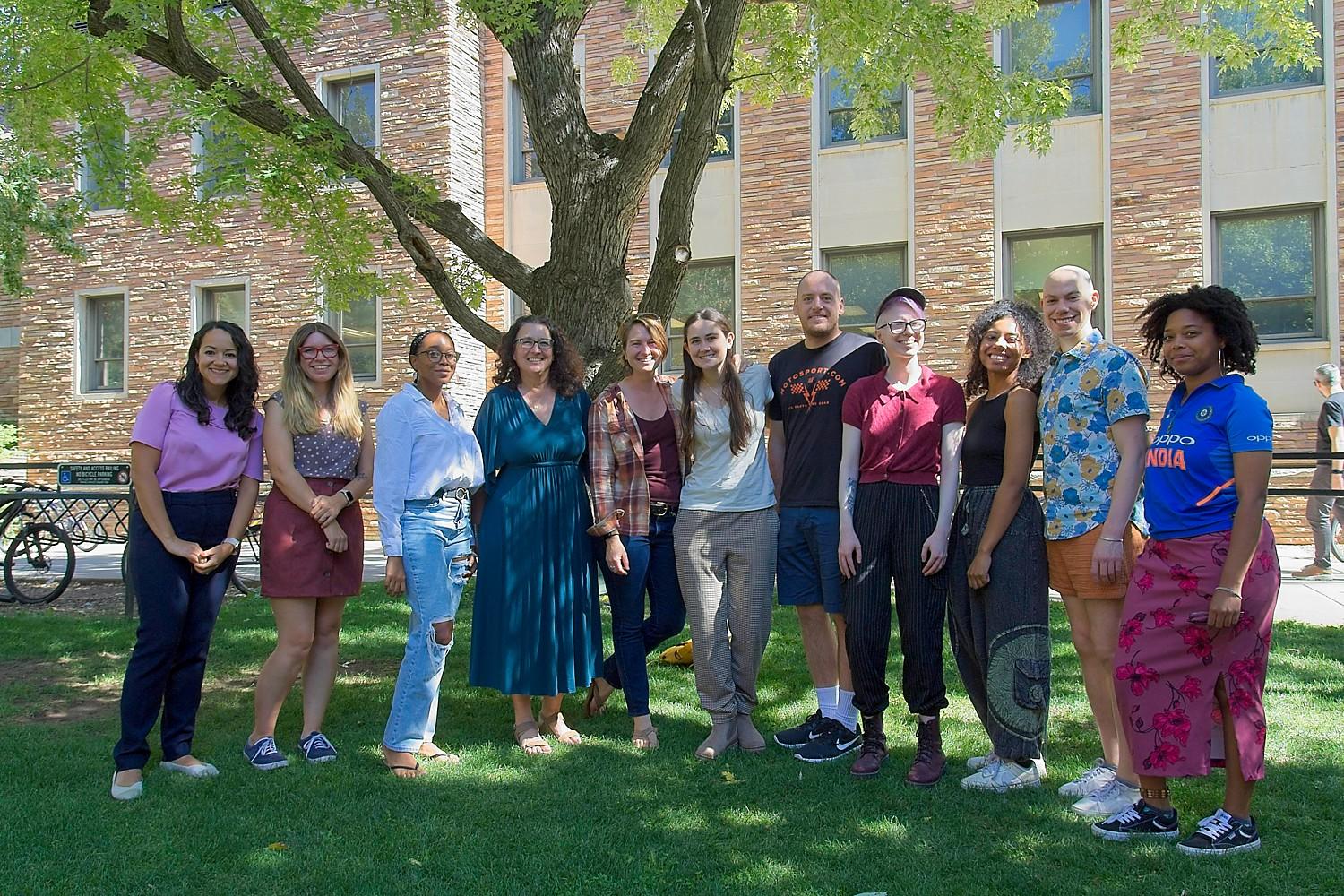CU Stereotyping and Prejudice Lab

CUSP — The CU Stereotyping and Prejudice Lab — meets weekly throughout the year to design, evaluate, and learn about research on this topic of inquiry. Headed by social psychologists Tiffany Ito and Evava (Eva) Pietri, CUSP offers a unique venue for students and faculty to present their work and receive feedback throughout all stages of the research process. Attendees typically include participating faculty, their graduate students, and undergraduate research assistants.
The CUSP lab conducts both basic and applied research related to stereotyping, prejudice, and intergroup relations. We seek to understand the core psychological processes that influence these constructs, examining their operation in both laboratory and field settings. We use a broad set of measures in this work, including traditional surveys and questionnaires, computerized tasks that tap these variables at more automatic or spontaneous levels, and neural indicators of the actual brain activity that underlies these processes.
CUSP members are currently researching social categorization, implicit stereotypes and their moderation, context effects on stereotyping, ideological perspectives on ethnic diversity, interpersonal and intergroup powers and stereotyping, visual salience in stereotyping, interpersonal communication and stereotypes, inhibition and control of stereotype and prejudice expression, affect and prejudice, and religious stereotypes, among others.
Interested in Getting Involved?
Prospective Graduate Students: Potential graduate students interested in joining the CUSP lab should apply to the University of Colorado's Social Psychology Program. Application materials for the social psychology graduate program can found on the Apply page. Students interested in discussing specific graduate research opportunities are encouraged to contact CUSP faculty directly.
For Current CU Undergraduates: The success of our work depends on the involvement of dedicated undergraduate students. Getting involved with research as an undergraduate is a great way to learn about the research process and get hands-on experience. This is especially valuable for students considering going on to graduate school. Most positions are voluntary, but you may choose to receive course credit for your work.
REQUIREMENTS: Minimum 3.00 GPA. Major in supervising faculty's primary academic department. Commitment to work in a research laboratory for one year. Ability to volunteer nine hours of time per week. Please contact individual CUSP faculty members about position availability.
CUSP Faculty
- Miriam Erickson (PhD 2022)
- Balbir Singh (PhD 2022)
- Brittany Tokasey (PhD 2022)
- Chris Mellinger (PhD 2020)
- Chad Danyluck (post-doc 2020)
- Shana Stites (MA, 2018)
- Brooke Carter (MA, 2018)
- Erin McPherson (PhD, 2018)
- Sarah Grover (PhD, 2017)
- Steffanie Guillermo (PhD, 2017)
- Katherine Wolsiefer (PhD, 2017)
- Sean Hudson (PhD 2016)
- Geoff Kerr (PhD 2015)
- Jake Westfall (PhD 2015)
- Sarah Banchefsky, (PhD 2015)
- Karyn Lewis (post-doc 2015)
- Jason Gwinn (PhD 2014)
- Keith Senholzi (PhD 2014)
- Arielle Silverman (PhD 2014)
- Erika Henry (post-doc 2014)
- Jane Stout (post-doc 2013)
- Adam Hahn (PhD 2012)
- Holen Hirsh (PhD 2012)
- Ana Nunes (PhD 2012)
- Heather Coulter (MA 2010)
- Jennifer Kubota (PhD 2010)
- Allegra Hodges (PhD 2009)
- Jordan Pennefather (PhD 2008)
- Sei Jin Ko (PhD 2007, from the University of Groningen, The Netherlands)
- Eve Willadsen-Jensen (PhD 2007)
- Geoff Urland (PhD 2006)
- Greg Webster (PhD 2006)
- Dominique Muller (post-doc 2005)
- David Marx (post-doc 2005)
- Josh Correll (PhD 2005)
- Christopher Jenkins (2002)
- Alison Lenton (PhD 2002)
- Melody Sadler (PhD 2002)
- Demis Glasford (BA 2001)
- Chris Wolsko (PhD 2001)
- Jen Overbeck (PhD 2001)
- Jennifer Ma (PhD 1999)
- Mike Stone (1999)

